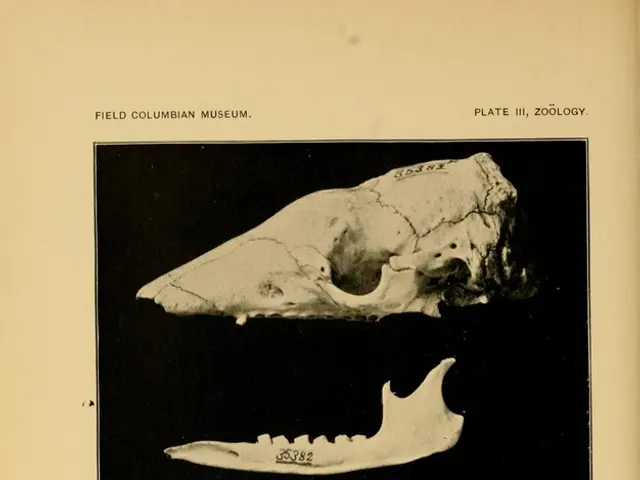Encouraging Desirable Habits in Children: Unique Nigerian Approaches
In Nigeria, the upbringing of children is shaped by a unique blend of traditional practices, modern psychological research, and collaborations with school and public health initiatives. This holistic approach aims to foster well-rounded, responsible, and socially integrated children.
Key Strategies in Nigerian Approaches
One of the fundamental strategies in Nigerian child-rearing is the adoption of parenting styles. The authoritative parenting style, characterised by high responsiveness, firm expectations, and constructive feedback, is favoured for its association with positive behavioural outcomes and social adjustment. On the other hand, authoritarian parenting, marked by excessive control and coercion, can inadvertently teach children to use force and aggression, increasing the risk of problematic behaviour. Permissive and uninvolved parenting, which allow children to model any behaviour from their environment, often lead to maladaptive social habits.
Integration with Education and Nutrition Programs plays a crucial role in Nigerian child-rearing. Early Childhood Care and Development Education (ECCDE) is incorporated into the public school system, combining academic instruction with social skills training, nutrition, and health education. School-Based Health and Nutrition Interventions, such as health education, physical activity programs, and behavioural interventions, aim to promote healthy lifestyles and good conduct.
Community and Environmental Initiatives also play a significant role. Environmental Sanitation and Health Awareness programs, led by state Ministries of Environment, aim to instil good habits by educating and involving children in community health practices. Skills Acquisition and Vocational Training programs are integrated into the school curriculum, preparing children for self-sufficiency and responsible adulthood.
Effectiveness
Research consistently highlights that authoritative parenting is associated with positive behavioural outcomes, while authoritarian and permissive styles are linked to negative behaviours and social maladjustment. Collaborative, multi-sectoral programs that address behavioural, health, and environmental factors have also shown promise in supporting positive child development.
However, challenges persist. Implementation bottlenecks, inconsistent parental practices, and gaps in program reach can limit overall effectiveness. Robust methodological approaches and continued investment in holistic interventions are recommended to strengthen these child-rearing strategies.
The Benefits
Nigerian methods offer a useful approach to cultivating good behaviour, providing children with an understanding of their culture and heritage, building strong interpersonal skills, fostering emotional intelligence, promoting confidence and self-esteem, and building a strong sense of community. These methods are practical and effective, promoting a sense of responsibility, self-control, and perseverance.
However, today's society presents challenges such as technology, social media, and work-life balance that can influence a child's perception of appropriate behaviour. Resources like the e-book 'Parenting in the Digital Age' offer guidance to navigate tech use, safety, and education for modern families.
In conclusion, Nigerian methods for cultivating good behaviour in children are effective when they blend authoritative parenting with comprehensive education, health, and community initiatives. These strategies, combined with traditional cultural values, offer a practical and effective approach to raising well-mannered, respectful, and responsible children.
- Adopting an authoritative parenting style, characterized by high responsiveness, firm expectations, and constructive feedback, is favored in Nigerian child-rearing for its association with positive behavioral outcomes and social adjustment.
- Integration with Education and Nutrition Programs, such as Early Childhood Care and Development Education (ECCDE) and School-Based Health and Nutrition Interventions, is crucial in Nigerian child-rearing, fostering academic instruction, social skills training, nutrition, health education, and promoting healthy lifestyles and good conduct.
- Environmental Sanitation and Health Awareness programs, led by state Ministries of Environment, aim to instill good habits by educating and involving children in community health practices in Nigeria.
- Skills Acquisition and Vocational Training programs, integrated into the school curriculum in Nigeria, prepare children for self-sufficiency and responsible adulthood.
- Research shows that authoritative parenting is associated with positive behavioral outcomes, while authoritarian and permissive styles are linked to negative behaviors and social maladjustment.
- Collaborative, multi-sectoral programs addressing behavioral, health, and environmental factors have shown promise in supporting positive child development in Nigeria.
- Resources like the e-book 'Parenting in the Digital Age' offer guidance to navigate technology, safety, and education for modern families, addressing challenges such as technology and social media that can influence a child's perception of appropriate behavior.
- Nigerian methods for cultivating good behavior in children offer benefits such as building strong interpersonal skills, fostering emotional intelligence, promoting confidence and self-esteem, and building a strong sense of community.
- These methods, combined with traditional cultural values, offer a practical and effective approach to raising well-mannered, respectful, and responsible children in Nigeria, excelling in the areas of family, lifestyle, education-and-self-development, health, and health-and-wellness.




